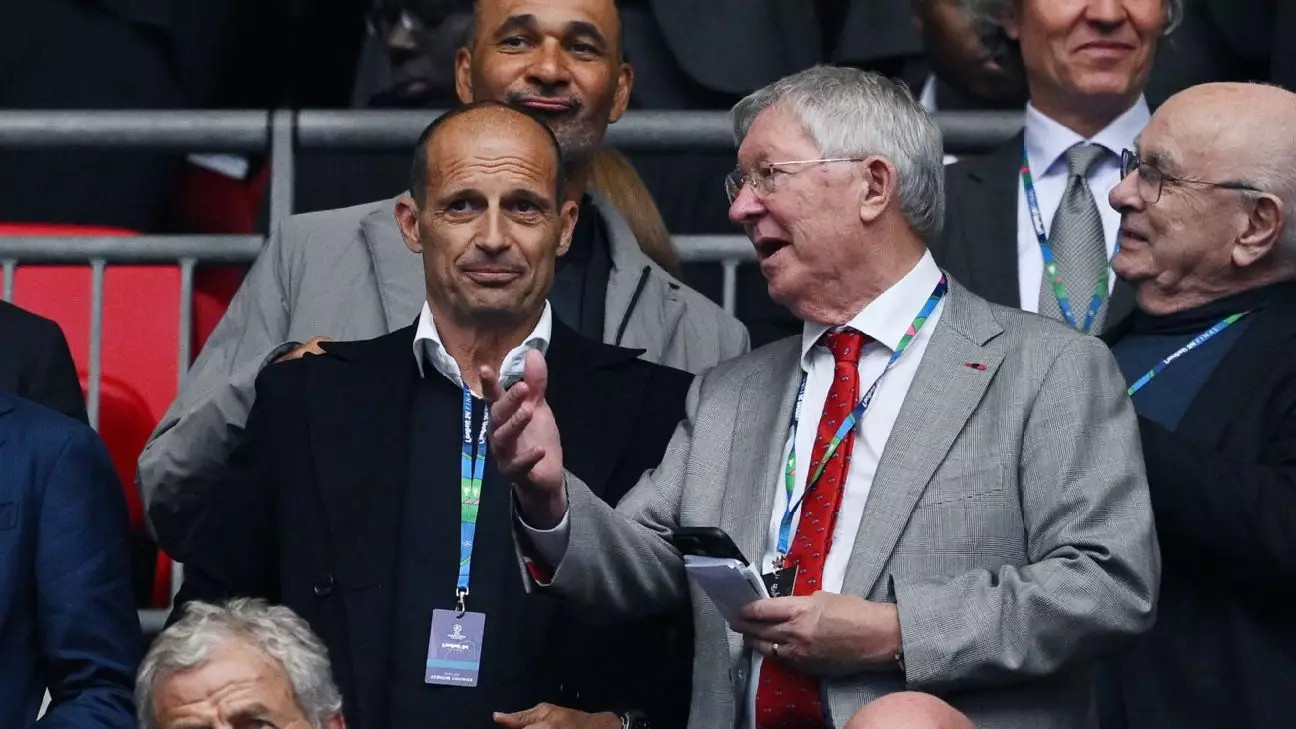Sir Alex Ferguson’s retirement from Manchester United in 2013 marked the end of an era not only for the club but for English football as a whole. The legendary manager, whose tenure spanned over 26 years, left behind a legacy that remains unmatched. His remarkable record of 13 Premier League titles and two Champions League victories established him as a towering figure in the sport. However, even over a decade since his departure, Ferguson candidly acknowledges that he still feels a sense of longing for the managerial role he once held.
In a recent interview, Ferguson reflected on his transition into retirement, revealing insights that resonate deeply with those who have retired from fulfilling careers. The thrill and intensity of coaching during high-stakes matches, especially European finals, are experiences he grapples with missing. He vividly recalled attending a European final shortly after his retirement, where he confided in his late wife Cathy about his yearning for those exhilarating moments. “This is what I miss,” he expressed, emphasizing how those “big events” hold a particular allure for him, one that made his everyday life as a manager unique and fulfilling.
Ferguson’s nostalgia serves as a reminder of the emotional connection that managers often develop with pivotal games—events that not only define their careers but also the identity of the clubs they lead.
Since Ferguson’s exit, Manchester United has experienced a tumultuous period. Five different managers have attempted to fill the giant shoes left by Ferguson, each striving to restore the club to its former glory. David Moyes, Louis van Gaal, Jose Mourinho, Ole Gunnar Solskjaer, and currently Erik ten Hag have each faced their own challenges in maintaining the high standards set by Ferguson. The inconsistency in performance and the struggle for trophies have highlighted the daunting task of rebuilding a legacy. While each manager brought their vision to Old Trafford, the club’s quest for the success it once enjoyed during Ferguson’s reign has undeniably been rocky.
Ferguson’s influence extends beyond the trophies he won; it is also about the culture he cultivated at Manchester United. He embodied a philosophy of resilience and sustained excellence, aspects that remain critical as the current team grapples with its identity. The absence of his leadership on the touchline reminds both fans and players of the standard that was once the norm.
As Manchester United prepares for their upcoming clash with Crystal Palace, the echoes of Ferguson’s illustrious past will likely reverberate among supporters and players alike. His admission of missing the game illustrates the passion that not only defined his career but also continues to shape the narrative of Manchester United today. The club’s journey may be fraught with challenges, but the foundation laid by Ferguson stands as a guiding beacon, reminding everyone involved of the greatness that is always within reach.

